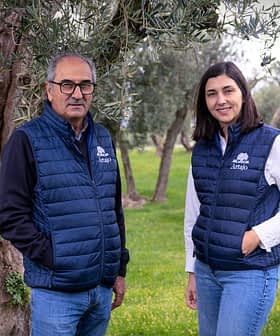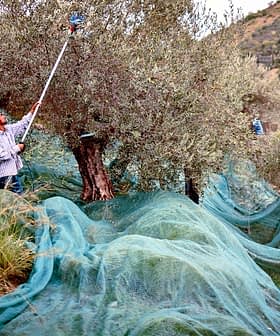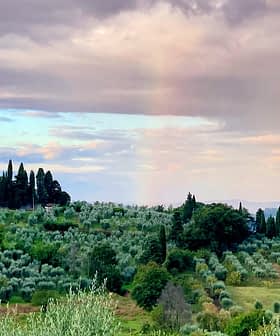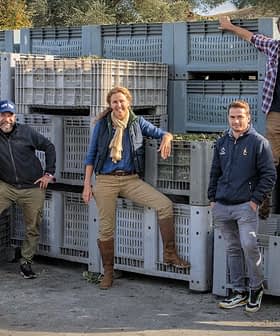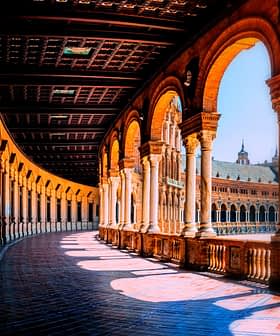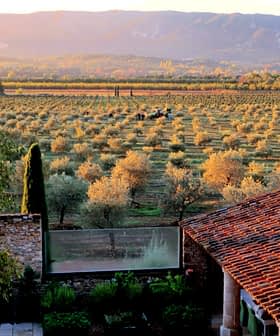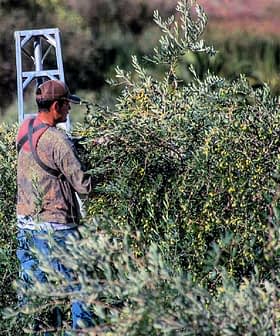93 Spanish Brands Among World's Best Olive Oils
Three Best in Class awards and 66 Gold Awards at the NYIOOC World Olive Oil Competition again affirm Spain among the world's top producers of high-quality olive oils.
 Viewing some of the award-winning oils at the 2018 NYIOOC (photo: NYIOOC)
Viewing some of the award-winning oils at the 2018 NYIOOC (photo: NYIOOC) 32.7K reads
32.7K readsSpain ranked second in total number of awards at the NYIOOC, with 151 entries, and came in third in terms of entries, showcasing a shift towards quality in the Spanish olive oil sector. Producers like Nobleza del Sur and Masía el Altet won awards, highlighting the diversity and quality of olive oils from regions across Spain.
In spite of a slight decrease in the number of entries from 2017 — from 167 to 151- Spain came in second in terms of the total number of awards, only after Italy, and reached the third position in entries, after Italy and Greece.
Being awarded among so many producers from so many countries is a very emotive recognition of our work.
Eighteen judges from 13 countries evaluated the unprecedented 1,000 entries at the N2018 YOOC. Brands from a record 22 countries were awarded.
See Also:The best olive oils from Spain
“This is a competition with a lot of weight. We producers appreciate it because it is prestigious and that gives us confidence. Being awarded among so many producers from so many countries is a very emotive recognition of our work,” said Lola Sagra, manager of Nobleza del Sur.
The company’s Centenarium Premium, harvested and produced in Jaén, Spain’s main olive oil production area, won the Best in Class Award for a delicate Picual.
Jorge Petit, manager of Masía el Altet, also points at the high number of contenders as one of the key attractions of the NYIOOC. The estate in Alicante, in Eastern Spain’s Valencia region, won three Gold Awards for its robust Picual and medium and delicate blends.
“This has an extraordinary impact for us, especially on the U.S. market. And winning awards is something nice, something that motivates us,” Petit told Olive Oil Times.
According to Sagra, one of the main trends in the Spanish olive oil sector, as seen at the New York competition, is the shift towards quality.
“We’ve always been great farmers. Now we have to be able to show the world how good our work is,” she added.
Alberto Barrobès, owner and manager of Montsagre, agrees that quality has become the main focus for a new generation of olive oil producers in Spain.
His organic delicate Picual from Horta de Sant Joan, in the South of Catalonia, was awarded as the Best in Class in that category.
Eusebio García de la Cruz, owner and co-founder along with his brother of García de la Cruz olive oil company received a Gold Award for his Amphora oil in the category of organic medium blend.
Speaking from his New York office, García de la Cruz suggests that the international perception of Spanish olive oil is in a process of change.

Eusebio García de la Cruz
“This sector is facing very important changes in the next few years. For example, I think that Spain will soon overtake Italy as the largest exporter of bottled olive oil in the world. We are the largest producer with a huge difference and I believe that the perception of the quality of Spanish oils is also improving. There is a long way to go in many aspects though.”
With as estimate production of 1.09 million tons of olive oil in 2018, Spain saw a 15 percent decrease from 2017’s campaign according to the International Olive Council, mainly due to persistent drought. However, these numbers place the Southern European country well ahead of its main competitor in terms of quantity.
Italy and Greece, with a total production of around 300,000 tons each, remain a long distance behind Spain despite having firmly recovered from 2017 with a 76 percent and 54 percent respective production increase in the current season.
“We are in a decisive moment for this sector. I think this sector is growing, but we need to grow not only in volume but in terms of culture,” Francisco José Martín de Prado told OOT.

Samuel Niglio received a Gold Award for Oleum Excelsus
Martín de Prado is the producer of Primicia Blend, a robust blend from Extremadura in the westernmost region of Spain which was selected as Best in Class.
Martín de Prado argues that in Spain, as in other Mediterranean countries, olive oil is seen as a basic product that is often taken for granted.
“One cannot understand Spanish food without it,” Martín de Prado said. “However, there is a lack of culture and we have to improve consumers’ knowledge about quality olive oils. I think we have a promising way ahead, although perhaps more at an international level than a national one.”
Spain’s contenders at the NYIOOC also reveal the diversity of the Spanish olive oil sector in terms of producing regions and cultivars.
From Jaén and Cordoba, at the heart of the country’s traditional olive oil sector, to Catalonia, Extremadura, Castilla La Mancha and Valencia, the award-winning producers draw a rich and diverse map.
“We are maybe a bit far from the ‘center,’ but I don’t think that makes us so different. There is also an oil tradition here and the volume of production has increased in recent years. I believe we have the same good conditions Jaén has to produce good quality. It’s taken time, but we are doing well,” said Martín de Prado.
Varieties such as Pajarera from Córdoba or Empeltre from Aragon and Catalonia offer an approach to local flavors that go beyond the most common Spanish varieties Picual, Arbequina and Hojiblanca.


